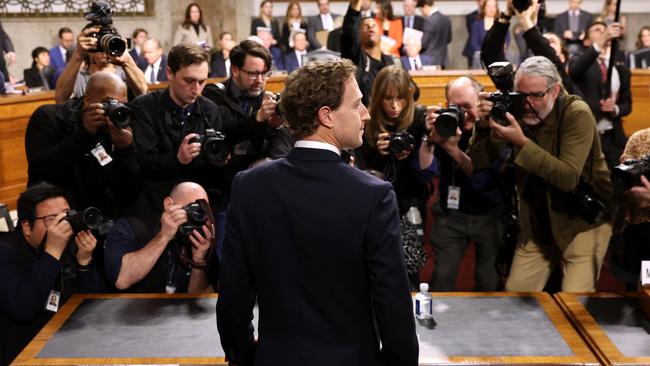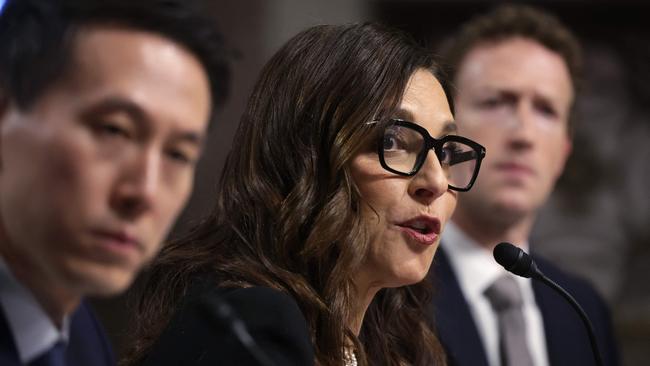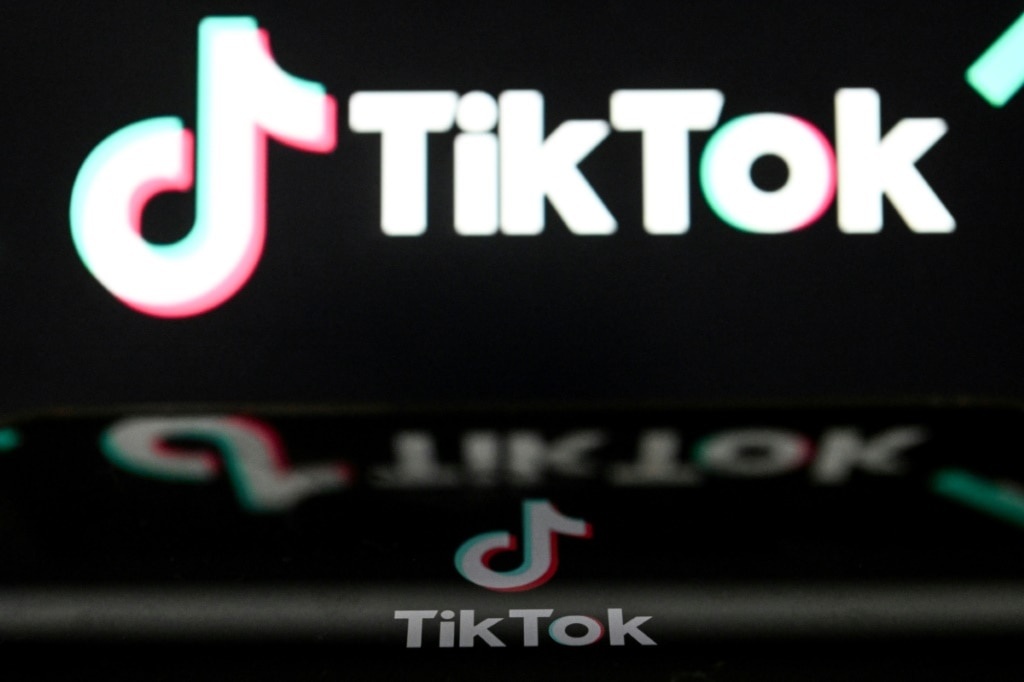Senators tell Meta, TikTok CEOs their platforms hurt children
Mark Zuckerberg and other tech leaders have been told they should be more responsible for ensuring the safety of children on their social media platforms.

Meta Platforms’ Mark Zuckerberg, TikTok’s Shou Zi Chew and other tech CEOs faced withering bipartisan criticism on Wednesday from senators who said social-media platforms must bear more legal liability when children are harmed online.
“You have blood on your hands,” Sen. Lindsey Graham (R., S.C.) told the executives during a hearing of the Senate Judiciary Committee, eliciting applause from a packed audience that included many holding pictures of children.
The Wall Street Journal has highlighted persistent dangers to children on social-media platforms, including how Instagram’s algorithms connect a vast network of pedophiles. Several lawmakers cited the Journal’s reporting in their criticism, and they pointed to a wave of lawsuits filed by parents and state attorneys general seeking to hold platforms accountable. Senators noted that many had been dismissed under laws designed to protect online speech.
Senate Judiciary Chairman Dick Durbin (D., Ill.) blasted the executives for a “crisis” in child sexual exploitation online.
“Their design choices, their failures to adequately invest in trust and safety, and their constant pursuit of engagement and profit over basic safety have all put our kids and grandkids at risk,” he said.
Zuckerberg, who got many of the most pointed questions, told lawmakers there are positive aspects of children’s interactions on Meta platforms. He also praised Facebook’s investment in child-safety work, saying the company has gone beyond legal requirements in seeking to remove abusive material.
“I’m proud of the work that our teams do to improve online child safety on our services and across the entire internet,” Zuckerberg said, pointing to technology that detects inappropriate or abusive content and tools that he said help parents get more involved in children’s decisions.

Meta reported about 27.2 million instances of suspected child sexual-abuse material on its main platforms to the National Center for Missing and Exploited Children in 2022, far more than any other company, according to the nonprofit group’s data. The U.S. total for all platforms was about 32 million in 2022.
But Meta has announced plans to encrypt messaging on its platforms, a step that will block the automated detection systems responsible for the majority of its reports.
Zuckerberg under scrutiny At one point, Sen. Josh Hawley (R., Mo.) asked Zuckerberg to apologize to parents in the audience. The Facebook founder stood, turned, and said: “I’m sorry for everything that you have all gone through. It’s terrible. No one should have to go through the things that your families have.” “This is why we invest so much and are going to continue doing industry leading efforts...to make sure that no one has to go through the types of things that your families have had to suffer,” he said.
Zuckerberg was asked about internal documents, released Wednesday by two lawmakers, that show top company officials asking him to invest in additional protections for children on their platforms.
Those requests for resources weren’t granted, according to state attorneys general who previously referenced some of the same material.
“Zuckerberg refused to fund programs that support the protection and well-being of kids, even after being urged to by his entire team,” Sen. Richard Blumenthal (D., Conn.) said in an interview. Blumenthal and Sen. Marsha Blackburn (R., Tenn.) obtained the Meta documents, some of which had been previously cited in filings by attorneys general in Tennessee, Massachusetts, Colorado and New Mexico.
A Meta spokesman said the documents “do not provide the full context of how the company operates or what decisions were made” and noted Zuckerberg’s written testimony for the hearing said the company has spent $5 billion on safety and security in the past year.
Sen. Ted Cruz (R., Tex.) cited a Journal report last year that Instagram in many cases has permitted users to search for terms that its algorithms know may be associated with illegal material. In such cases, a pop-up screen warned users the results “may contain images of child sexual abuse” and offered two options for users: “Get resources” and “See results anyway,” the Journal reported.
“Mr. Zuckerberg, what the hell were you thinking?” Cruz asked. “In what sane universe is there a link to ‘See results anyway?’” “Well, we might be wrong” about the material being inappropriate, Zuckerberg responded. He also noted that the company reports more suspected child-exploitation material to authorities than any other social-media company.
In response to questions from the Journal, Instagram removed the option for users to view search results for terms likely to produce illegal images.
TikTok data Chew’s prepared remarks touted TikTok’s growing U.S. user base -- now at 170 million, up from 150 million in 2023 -- and its average age of 30. He said the platform takes steps to minimize the exploitation of children, such as prohibitions on direct messaging for users under 16 and on recommending their videos to strangers.
But Chew ran into critical questions from Sen. John Cornyn (R., Tex.) over how well TikTok protects its U.S. users’ data from Chinese authorities. TikTok is owned by Beijing-based ByteDance, and U.S. officials worry that it could be forced to provide sensitive U.S. user data to Chinese authorities.
Cornyn pointed to a Wall Street Journal report this week that TikTok is struggling to wall off U.S. users’ data from ByteDance as it has promised to do. Chew disputed the article’s accuracy but said that “no system that any one of us can build is perfect.” Legal liability Groups representing young victims of online harms including social-media addiction and sexual exploitation held media events this week to help drum up support for lawmakers’ efforts to rein in social-media platforms.
John DeMay, the father of a Michigan teenager who died by suicide after falling victim to an online extortion scheme, said he hopes the Senate hearing will bring awareness “that social media is not a safe place, especially for children.” He and his family are considering legal options.
But suing the companies for harm to children can be legally difficult. Currently, the platforms often can avoid liability when someone is harmed as a result of social-media use because of special legal protections that Congress created for the platforms in the 1990s when the internet was in its infancy. Those protections generally immunize the platforms from liability for harm from content generated by other users.

Durbin and other lawmakers have proposed removing those special legal protections in cases where children are sexually exploited.
Industry representatives say that those bills could harm users’ privacy, mainly by discouraging the platforms’ use of encryption. Tech industry allies argue that could affect a range of groups from LGBTQ youth to people seeking reproductive health services.
Durbin pressed Snap Chief Executive Evan Spiegel at the hearing’s outset, saying Snapchat’s disappearing messages were a tool of choice for sexual predators. “Do you have any doubt that had Snap faced the prospect of civil liability for facilitating exploitation, the company would have implemented better safeguards?” Durbin asked.
“We already work extensively to proactively detect this type of behavior, ” Spiegel said. He contrasted Snapchat with other social-media apps, noting that it limits predators’ ability to find people on the app and facilitates private messages rather than public “likes” or comments.
Zuckerberg also sought to direct lawmakers’ ire toward other tech companies, suggesting a law requiring smartphone app stores to get parental consent any time a child downloads an app. Such a change “should be pretty trivial” for iPhone maker Apple to implement, he said.
Sen. Amy Klobuchar (D., Minn.) said parental-control tools burden parents, likening them to using a mop to combat an overflowing faucet.
“The answer,” Klobuchar said, “is opening up the halls of the courtroom, so that puts it on you guys to protect these parents and protect these kids.”
Jeff Horwitz contributed to this article.







To join the conversation, please log in. Don't have an account? Register
Join the conversation, you are commenting as Logout